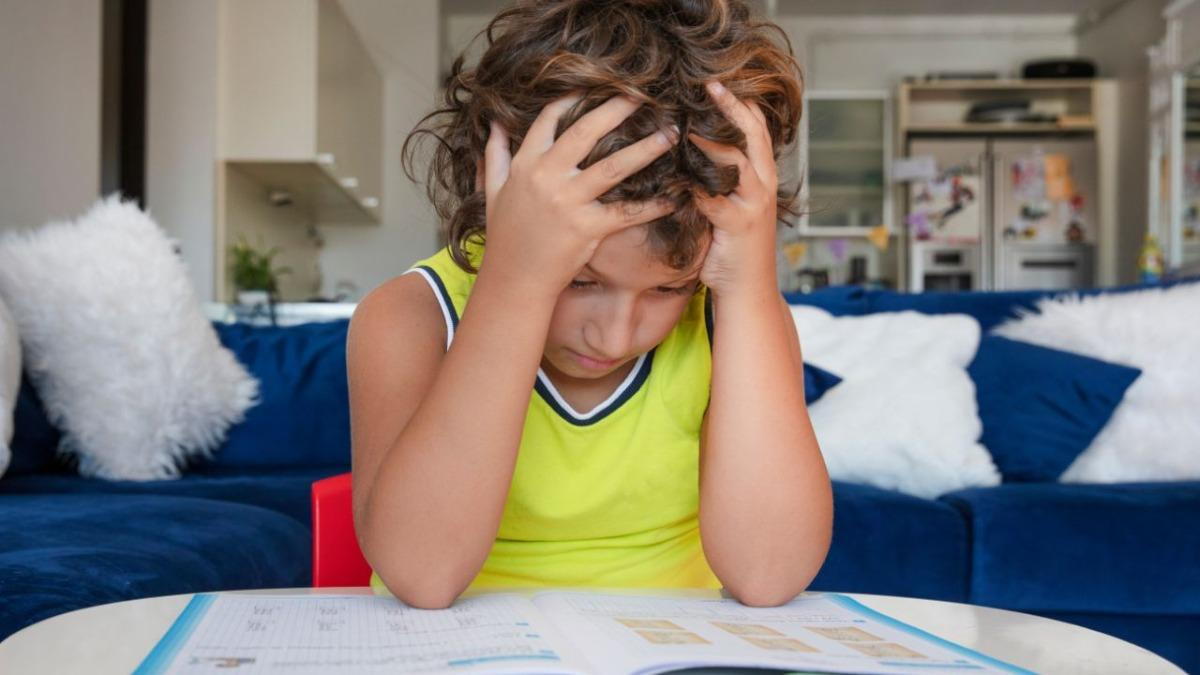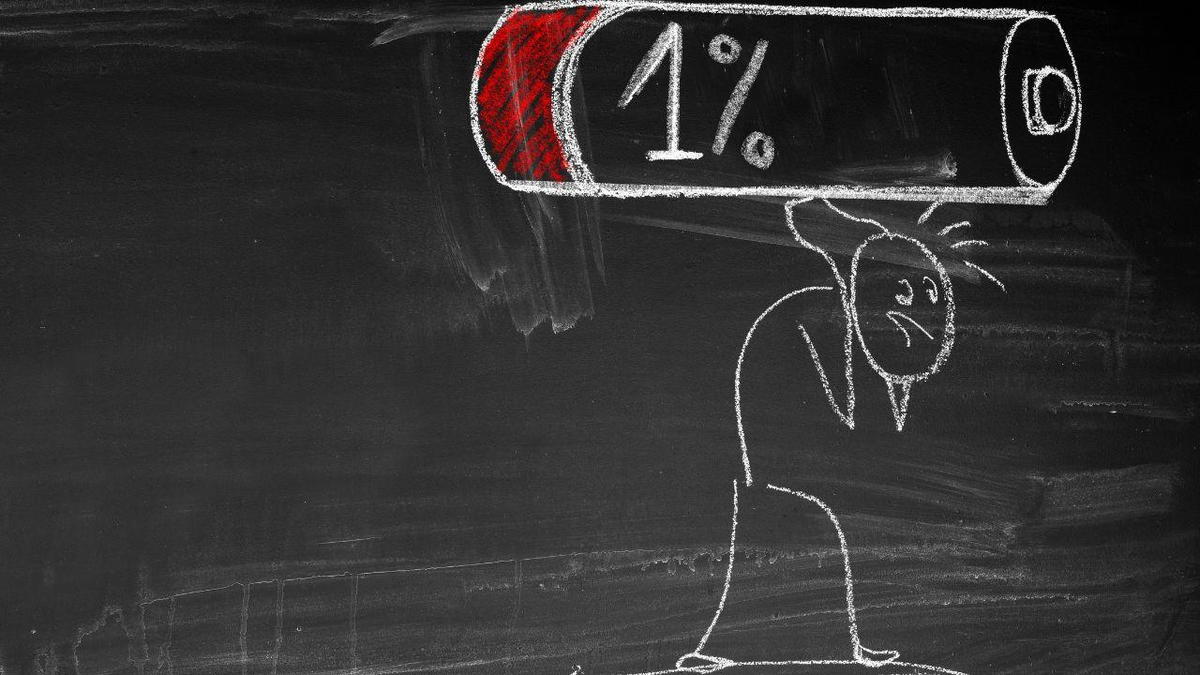
Feeling more exhausted and irritable than usual? Noticing a dip in your child’s motivation and creativity? These could be signs of academic burnout—a condition that affects both children and teenagers and can significantly impact their school experience. McKinney pediatrics McKinney TX experts understand how important it is to address this issue early on. In this guide, we'll explore academic burnout, its symptoms, and practical steps you can take to support your child in overcoming it and preventing it in the future.
What Is Academic Burnout?

Academic burnout is a state of emotional, physical, and mental exhaustion caused by prolonged stress related to academic activities. It often results from extended periods of studying or working on school projects, leading to feelings of frustration, exhaustion, and a lack of motivation. Unlike the occasional tiredness or frustration from studying late, academic burnout is a that can develop over weeks or months. For children and teenagers, academic burnout can manifest in various ways, impacting their overall well-being and performance. It's essential for parents to recognize the signs early to help their child regain balance and enthusiasm for their studies.
Recognizing the Symptoms of Academic Burnout

Recognizing academic burnout signs is vital for timely intervention. Common signs that your child might be experiencing burnout include:
Persistent Exhaustion: Your child feels tired even after a full night’s sleep, struggling to stay awake and alert during the day.
Decline in Interest: They show a noticeable drop in enthusiasm towards schoolwork and extracurricular activities.
Increased Irritability: They become more easily frustrated or upset over minor issues.
Reduced Creativity: They have trouble coming up with new ideas or engaging in creative tasks.
Physical Symptoms: They experience headaches, stomachaches, or other physical complaints related to stress.
Trouble Focusing: They find it difficult to concentrate on assignments or class discussions.
Social Withdrawal: They start pulling away from friends and family, preferring to be alone.
Academic Decline: There is a noticeable drop in their academic performance and grades.
Practical Steps to Prevent Academic Burnout
Without a doubt, academic burnout requires preventive measures. Here are practical steps you can take to help your child maintain a balanced approach to their studies:
Encourage Regular Breaks
Ensure your child incorporates regular breaks into their study routine to prevent overloading and reduce stress. Short breaks during study sessions help refresh their mind and improve concentration.
Promote a Balanced Lifestyle
Encourage your child to engage in activities they enjoy outside of school. Hobbies, sports, and social activities contribute to a well-rounded lifestyle and provide necessary relaxation.
Support Good Sleep Habits
A consistent sleep schedule is vital for your child's health and academic performance. Aim for 7-9 hours of quality sleep each night to help your child stay rested and alert.
Maintain a Nutritious Diet
A balanced diet supports both physical and mental health. Ensure your child eats a variety of healthy foods, including fruits, vegetables, lean proteins, and whole grains.
Encourage Regular Exercise
Physical activity is crucial for managing stress and maintaining overall well-being. Encourage your child to participate in regular exercise, such as sports, walking, or other enjoyable activities.
Create a Study-Friendly Environment
Help your child set up a designated, organized, and quiet study space. An environment free from distractions can enhance focus and productivity.
Set Realistic Goals
Work with your child to set achievable goals and break larger tasks into smaller, manageable steps. This approach reduces the feeling of being overwhelmed and helps maintain motivation.
Support Time Management Skills
Teach your child effective time management strategies, such as using a planner or calendar to keep track of assignments and deadlines. Proper planning helps reduce last-minute stress and improves organization.
Encourage Social Connections
Fostering positive relationships with friends and family provides emotional support and contributes to a more enjoyable school experience. Encourage your child to maintain social connections and seek support when needed.
Develop Positive Relationships with Teachers
Strong relationships with teachers can make school feel more engaging and less like a chore. Encourage your child to communicate openly with their teachers and seek help when needed.
Addressing Academic Burnout

If you notice signs of academic burnout in your child, address the issue promptly. Here’s how you can help:
Seek Professional Help
If burnout symptoms are severe or persistent, consider seeking help from McKinney pediatricians, a mental health professional, school counselor, or psychologist. Professional support can provide valuable strategies and resources for managing stress and improving well-being.
Reevaluate Academic Demands
Assess your child’s academic workload and adjust their schedule if needed. Reducing excessive demands can help alleviate stress and prevent burnout.
Encourage Self-Care and Positive Thinking
Promote self-care practices, such as mindfulness, relaxation techniques, and positive thinking. Encouraging your child to take time for themselves and engage in activities they enjoy can improve their overall outlook.
Involve Teachers and School Staff
Discuss your child's needs with teachers and school staff to explore potential accommodations or support options. Collaboration with educators can help address specific challenges and provide additional support.
Supporting Your Child’s Recovery
Recovery from academic burnout takes time and commitment. Here’s how you can support your child through the recovery process:
Manage Stress Levels
Help your child manage stress by encouraging relaxation techniques, such as deep breathing exercises, meditation, or yoga. Reducing stress is essential for recovery and overall well-being.
Make Important Lifestyle Changes
Encourage your child to make lifestyle changes that support their recovery, such as improving their sleep habits, engaging in physical activity, and maintaining a balanced diet.
Stay Patient and Supportive
Be patient and understanding as your child works through their burnout. Offer encouragement and support, and celebrate their progress as they regain their motivation and enthusiasm.
Preventing Future Burnout
Once your child has recovered from academic burnout, implementing strategies to prevent it from happening again is crucial. Consider these tips:
Regularly Discuss School Experiences
Keep an open line of communication with your child about their school experiences and any emerging signs of stress. Regular discussions help identify issues early and prevent burnout.
Promote a Growth Mindset
Encourage your child to focus on learning and improvement rather than solely on outcomes. A growth mindset fosters resilience and helps them cope with challenges more effectively.
Encourage Extracurricular Activities
Participation in extracurricular activities can provide a healthy balance to academic life and offer opportunities for personal growth and enjoyment.
Teach Resilience Skills
Help your child develop resilience by teaching them strategies for coping with challenges and setbacks. Resilience is key to managing stress and avoiding burnout.
Review and Adjust Commitments
Regularly review your child's academic and extracurricular commitments to ensure they are manageable. Adjusting their schedule as needed helps maintain a balanced lifestyle.
Choose Flexible Academic Programs
If possible, consider flexible academic programs that allow your child to study at their own pace and fit their schedule. Flexible programs can reduce stress and provide a more manageable workload.
Conclusion
Academic burnout is a very real condition that can significantly impact your child’s school experience and overall well-being. By recognizing the signs early and taking proactive steps, you can help your child maintain a positive and balanced approach to their education. At Kidsville Pediatrics McKinney, we are dedicated to supporting the health and well-being of your children. For more information and resources on supporting your child’s mental and emotional health, visit our website or reach out to our team. With the right strategies and support, your child can overcome burnout and thrive academically and personally.
You may schedule an appointment online: https://www.kidsvillepeds.com/appointment/ Or visit/call our clinics: Kidsville Pediatrics Mansfield TX: 682-341-3910; 1759 Broad Park Circle S, Suite 201 & 205, Mansfield, TX Kidsville Pediatrics Southlake: 682-345-8010; 2813 W. Southlake Blvd Suite 100 Southlake, TX Kidsville Pediatrics McKinney: 469-885-9400; 5881 Virginia Pkwy. Suite 300 Mckinney, TX |
